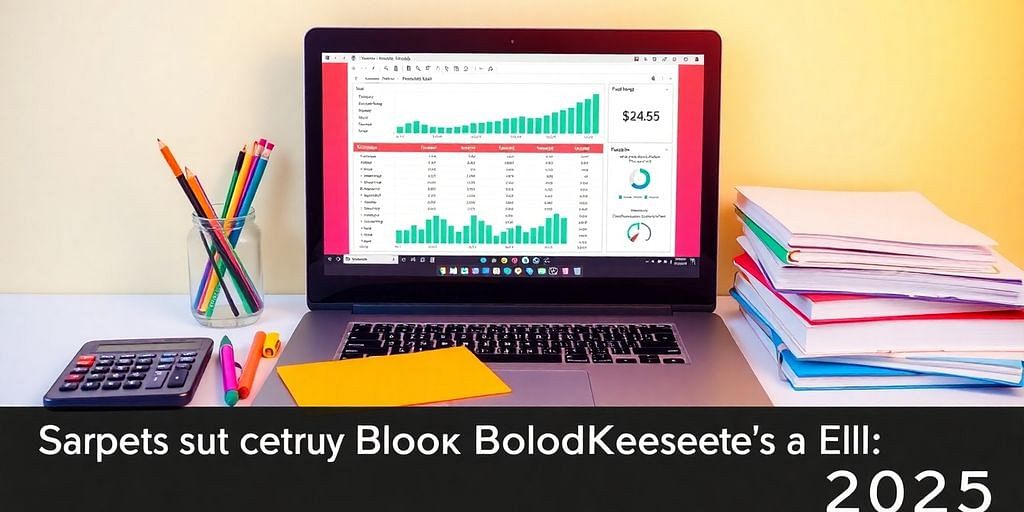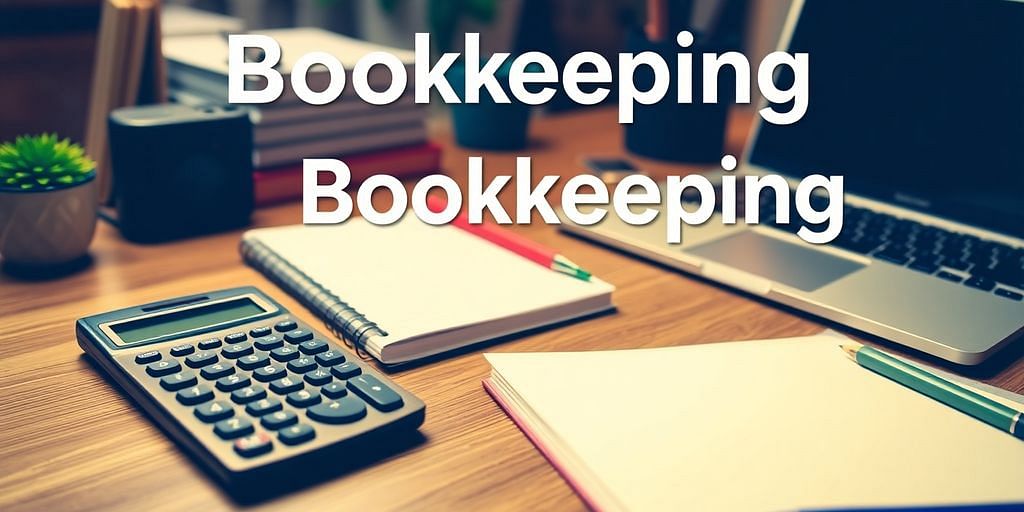
Unlock Your Financial Skills: Discover the Best Bookkeeping Courses for 2025
Back To BlogChoosing The Perfect Bookkeeping Course
Choosing the right bookkeeping course can feel like a big decision, but it's totally achievable if we break it down. We need to think about what we want to get out of the course and what fits into our lives. It's like finding the perfect pair of shoes – comfort and style matter!
Evaluating Course Content and Instructors
When we're trying to find the right course, looking closely at what it covers and who's teaching it is super important. We want to make sure the course covers the basics, like double-entry bookkeeping, but also gets into some more advanced stuff. It's also a good idea to see if the instructors have actually worked in the field and if they can explain complicated things in a way that's easy to understand. Checking out reviews and recommendations can give us a sneak peek into what other people thought and help us pick a course that's worth our time and money.
Finding a Class That Fits Your Schedule
Let's be real, we're all busy, and trying to fit a class into our already packed schedules can be tough. Flexibility is key! We should look for courses that offer self-paced learning or have class times that work for us. Online courses can be a lifesaver here, letting us learn whenever and wherever we want. It's all about finding a balance that lets us learn without stressing us out even more.
Understanding Certification Options
Certifications can be a great way to show employers or clients that we know our stuff. But, not all certifications are created equal. We need to research which ones are respected in the industry and what the requirements are to get certified. Some courses include certification exams, while others just prepare us for them. Knowing the difference can help us make a smart choice and enhance your skills in the long run. It's like getting a gold star for all our hard work!
Unlocking The Secrets Of Online Bookkeeping Courses

Why Online Learning is a Game Changer
Okay, let's talk about why online learning is such a big deal, especially when it comes to bookkeeping. Honestly, the flexibility is amazing. We can learn when we want, at our own speed, and not have to worry about a set schedule. This means we can fit learning into our lives, instead of the other way around. Plus, there are tons of courses out there, so we can find one that's perfect for us, whether we're just starting out or want to improve our skills.
Online courses often use interactive tools and resources that make learning more interesting and effective. We can watch videos, take quizzes, and even join online groups where we can share tips with other students.
Online learning has really changed the game, making education more accessible and convenient than ever before. It's not just about ease; it's about creating a learning environment that fits our individual needs and lifestyles.
Top Platforms for Bookkeeping Courses
So, where should we go to learn? A few platforms really stand out. First, check out NACPB certificate programs. Then there's Coursera, which works with colleges to provide more structured courses, and sometimes even offers certificates when you finish.
Here's a quick comparison:
Interactive Learning Tools You’ll Love
Online bookkeeping courses aren't just about watching videos (though there are plenty of those!). We also get to use some cool interactive tools that make learning more fun.
- Simulations: These let us practice bookkeeping tasks in a safe, virtual environment. It's like a flight simulator, but for finances!
- Quizzes and Assessments: These help us check our understanding and see where we need to focus our efforts.
- Forums and Discussion Boards: We can connect with other students, ask questions, and share our experiences. It's like having a study group available 24/7.
These tools really help make learning enjoyable and effective. Plus, they keep us engaged and motivated, which is key to sticking with it and achieving our goals.
Mastering The Basics Of Bookkeeping

Bookkeeping is really the base of any solid financial setup, whether it's for a small business or just keeping your personal finances in order. It's all about tracking every dollar that comes in and goes out. Think of it as the GPS for your money—helping you see where you are and where you need to go.
What You’ll Learn in a Bookkeeping Course
In a bookkeeping class, we get into the basics like debits, credits, and how to avoid common mistakes. Plus, there's lots of hands-on practice, so it's not just theory. We actually do the work, which is where the real learning happens. Here’s a taste of what most bookkeeping courses cover:
- Keeping general ledgers.
- Recording daily transactions accurately.
- Reconciling accounts to ensure everything matches up.
- Producing financial statements like balance sheets and income reports.
Some courses even get into tools like QuickBooks or Excel, making your job easier. For those aiming for professional certification, this online course can prepare you for the AIPB exam, a great step toward becoming a certified bookkeeper.
Tools You’ll Use
We'll also pick up some practical tools, like:
- QuickBooks: This software is a lifesaver. It’s user-friendly and helps you record transactions, print checks, and customize reports.
- Accounting Software Setup: We’ll guide you through setting up and getting started with accounting software.
- Organizing financial records efficiently.
- Recognizing how bookkeeping supports decision-making.
- Getting comfortable with accounting software like QuickBooks or Excel.
Getting the hang of bookkeeping might seem hard at first, but once you get into the groove, it becomes second nature. It’s all about practice and consistency.
Next Steps to Enhance Your Skills
By mastering bookkeeping, we can piece together our financial puzzle. It's not just about saving money, but gaining control over our financial future. Imagine knowing exactly where your money goes and how to make it work for you. Here are some next steps:
- Stay Organized: Knowing how to record transactions properly saves you from headaches during tax season.
- Make Smarter Decisions: Clear financial records help you understand where your money is going and where you can save.
- Boost Your Career: Employers love candidates with bookkeeping skills because it’s a skill that every company needs.
Advanced Skills For The Aspiring Bookkeeper
Diving Into Complex Topics
Okay, so you've got the basics down. Now it's time to really get into the nitty-gritty. We're talking about stuff that separates the good bookkeepers from the great ones. This is where we start looking at things like financial analysis, forecasting, and even a bit of strategic financial planning. It's not just about recording transactions anymore; it's about understanding what those transactions mean and how they impact the bigger picture. Think about it – you're not just inputting numbers; you're helping businesses make smart decisions.
The Role of Software in Modern Accounting
Let's be real, nobody does bookkeeping by hand anymore. Well, almost nobody. Software is where it's at, and knowing your way around the popular programs is a must. We need to get comfortable with the tools of the trade.
- QuickBooks: Still a powerhouse, and for good reason. It's user-friendly and packed with features.
- Xero: Another big player, especially popular with smaller businesses. Cloud-based, which is super convenient.
- Spreadsheets: Don't underestimate the power of a good spreadsheet program. Excel or Google Sheets can still be incredibly useful, especially for custom reports or analysis.
Learning these programs isn't just about knowing where the buttons are. It's about understanding how they work, how to customize them to fit your needs, and how to use them to automate tasks. That's what makes you a valuable asset.
Preparing for Professional Certification
So, you want to be a real deal, huh? Getting certified is a great way to show the world you know your stuff. It adds weight to your resume and can open doors to better jobs and higher pay. Plus, it just feels good to have that piece of paper that says, "Yeah, I'm good at this." There are a few different certifications out there, so it's worth doing some research to see which one is right for you. For example, you could explore free online bookkeeping courses that offer certificates.
- Certified Bookkeeper (CB): A solid choice for general bookkeeping skills.
- Certified Public Accountant (CPA): This is the gold standard, but it requires a degree and passing a tough exam.
- QuickBooks Certified User: If you're a QuickBooks whiz, this one's a no-brainer.
Think about what kind of bookkeeping you want to do and what kind of clients you want to work with. That will help you decide which certification is the best fit. Also, consider how accounting bookkeeping courses can help you prepare. Good luck!
If you want to become a great bookkeeper, you need to learn some advanced skills. These skills will help you stand out and do your job better. Don't wait! Visit our website to find helpful resources and tips that can boost your bookkeeping career today!
Frequently Asked Questions
What is the best bookkeeping course for beginners?
If you're just starting out, look for courses like 'Bookkeeping Basics' on Coursera or 'Introduction to Bookkeeping and Accounting' by OpenLearn. They are easy to follow and teach you the basics.
Are there free bookkeeping courses available online?
Yes! Websites like Alison, OpenLearn, and Skill Success offer free bookkeeping courses. Some even give you a certificate when you finish.
Do I need prior experience to take a bookkeeping course?
No, most beginner courses don’t require any experience. They are designed to teach you everything from the ground up, making them perfect for newcomers.
